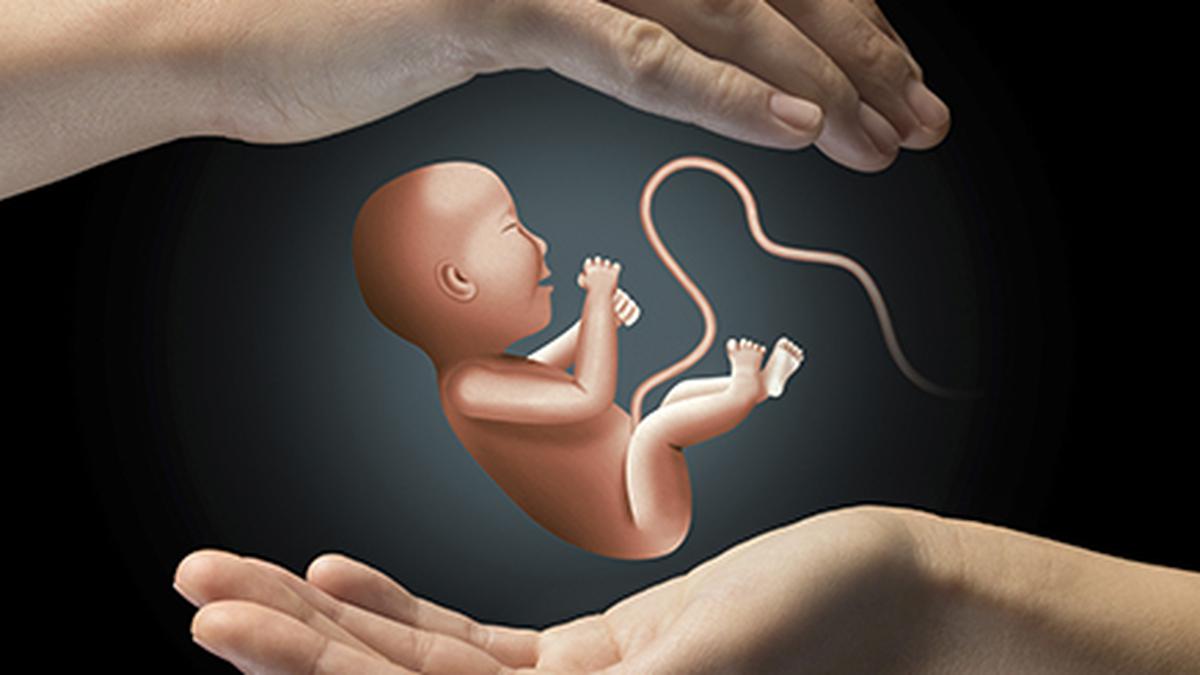The Karnataka Health Department recently thwarted an inter-state female foeticide attempt, highlighting the ongoing challenges of combating gender-based prenatal discrimination. Authorities intercepted the case after receiving a tip-off regarding suspicious medical consultations in a private clinic. The intervention has been hailed as a success in enforcing the Pre-Conception and Pre-Natal Diagnostic Techniques (PCPNDT) Act, which strictly prohibits sex determination and selective abortions based on gender. Officials emphasized that such vigilance is crucial to protect the girl child and uphold legal and ethical standards.
According to Health Department sources, the attempt involved individuals from neighboring states seeking illegal prenatal services within Karnataka. The authorities acted swiftly, conducting medical inspections and cross-verifying records to ensure that no illegal procedures were performed. The clinic and involved personnel are now under investigation, and legal action is being initiated against those found violating the law. This case underscores the need for strict monitoring of medical establishments to prevent the misuse of diagnostic technologies.
Social activists and women’s rights organizations have lauded the department’s timely action, emphasizing that female foeticide remains a serious concern in India despite legal safeguards. Experts point out that gender-biased societal attitudes continue to drive such practices, making enforcement of laws like the PCPNDT Act vital. Officials have called for heightened awareness campaigns, stricter surveillance of clinics, and prompt reporting mechanisms to prevent future cases of gender-based prenatal discrimination.
Community Awareness
Authorities stressed the importance of educating families about the legal consequences and ethical implications of female foeticide. Public outreach programs are being planned in vulnerable districts to reinforce the value of the girl child.
Health workers are also being trained to detect suspicious patterns and report cases immediately, ensuring community-level vigilance complements legal enforcement.
Officials reported that the Karnataka Health Department’s timely intervention was prompted by routine surveillance and tip-offs from whistleblowers within the medical community. Such proactive measures are crucial because female foeticide is often conducted discreetly, making detection difficult. In this case, alert health inspectors and field officers acted quickly to verify patient records, question clinic staff, and ensure that no illegal procedures were carried out. Their vigilance demonstrates the importance of continuous monitoring to safeguard the rights of unborn girls.

The case involved individuals traveling from neighboring states to access illegal prenatal services, highlighting how inter-state networks exploit loopholes in enforcement. Authorities noted that such operations often rely on unregistered clinics, forged documents, or complicit medical personnel. By acting decisively, Karnataka’s health officials disrupted what could have been a pattern of repeated offenses, sending a strong message to other clinics that violations of the PCPNDT Act will not be tolerated.
Legal experts emphasized that the PCPNDT Act allows for stringent action against both medical practitioners and accomplices. Violators may face imprisonment, fines, and permanent suspension of medical licenses. In addition, authorities can seize equipment used in illegal procedures and freeze bank accounts associated with such practices. These measures are designed to deter the continuation of gender-biased prenatal practices and reinforce the legal protection of the girl child.
Social activists highlighted that female foeticide continues to be a societal issue rooted in deep-seated gender biases. Despite legal safeguards, many families prefer male children due to economic, cultural, and social reasons. Officials pointed out that enforcement alone cannot eliminate the practice; parallel efforts in education, community awareness, and women empowerment are equally necessary to change mindsets and reduce demand for sex-selective abortions.
Health workers at the district level are being trained to identify red flags that may indicate illegal prenatal practices. These include irregular patient visits, requests for repeated ultrasounds without medical justification, and suspicious documentation. By equipping field staff with the knowledge to detect anomalies, authorities aim to prevent female foeticide at the community level before it escalates into criminal acts.
Legal and Medical Action
The clinic involved is under strict investigation, with potential suspension of licenses and criminal proceedings under the PCPNDT Act. Authorities have warned other establishments that violations will attract severe punishment.
Police and health officials are coordinating to track any inter-state networks attempting illegal prenatal practices, aiming to prevent recurrence and uphold child rights.
The department is also working with neighboring states to curb inter-state female foeticide networks. Joint monitoring, shared databases, and coordinated inspections are being planned to track suspicious activities and prevent individuals from exploiting jurisdictional gaps. This collaborative approach aims to close loopholes that traffickers or unscrupulous medical practitioners might otherwise use.

Community education campaigns are being intensified, especially in areas prone to gender-biased practices. These programs focus on the value of the girl child, the legal consequences of female foeticide, and the importance of gender equality. School programs, village meetings, and media outreach are being used to reach both urban and rural populations, ensuring that families are informed and supportive of girl children.
Authorities have warned that strict surveillance of medical clinics will continue across Karnataka. Random inspections, audits of ultrasound machines, and verification of patient records are being conducted to ensure that no clinic operates outside the law. Health officials stress that vigilance is a continuous process, and all stakeholders—including doctors, families, and local administrators—have a role in preventing gender-biased practices.
The case has sparked public debate on the ethical responsibilities of medical practitioners. Experts have called for enhanced accountability and professional ethics training, stressing that healthcare providers should serve as protectors of life rather than enablers of discriminatory practices. The medical community is being urged to support government efforts, report suspicious activities, and promote gender-sensitive care.
Finally, the Karnataka Health Department has reaffirmed its commitment to protecting the girl child and enforcing the PCPNDT Act. Officials have stressed that timely action, combined with community engagement, education, and inter-state collaboration, can effectively reduce the incidence of female foeticide. The recent intervention serves as both a warning to violators and a reminder of the importance of safeguarding the rights of unborn girls.
Authorities are planning to strengthen enforcement strategies by deploying additional field inspection teams in high-risk areas. These teams will conduct unannounced visits to clinics, cross-check patient records, and monitor ultrasound and diagnostic equipment. The proactive approach aims to detect illegal practices early, preventing female foeticide before it occurs and ensuring that medical facilities operate within the framework of the PCPNDT Act.
Training sessions for medical personnel are being intensified, emphasizing the ethical and legal responsibilities associated with prenatal diagnostics. Doctors, technicians, and clinic staff are being reminded of the severe penalties for violating the law, including imprisonment, fines, and license revocation. The objective is to create a culture of compliance and vigilance within the healthcare system, minimizing the risk of unethical practices.
Community-level vigilance is also being promoted through local women’s groups, self-help organizations, and panchayat committees. Citizens are encouraged to report suspicious activity to authorities, ensuring that families, neighbors, and community members actively participate in safeguarding unborn girls. Awareness programs aim to educate the public on legal recourse, ethical responsibilities, and the social consequences of gender-biased practices.
Health officials are collaborating with law enforcement agencies to track inter-state movements of individuals seeking illegal prenatal services. Coordination with police, transport authorities, and neighboring state health departments is being strengthened to prevent trafficking and exploitation. Joint operations and shared intelligence are expected to close loopholes that unscrupulous actors often exploit to bypass regulations.
Educational campaigns are highlighting the value of the girl child and promoting gender equality in schools, colleges, and community centers. These programs focus on long-term social change, targeting mindsets that perpetuate discrimination against female children. By integrating these lessons into curricula and community activities, authorities hope to reduce demand for sex-selective abortions over time.


Technological interventions, such as digital monitoring of ultrasound machines and centralized patient record databases, are being considered to improve oversight. Real-time tracking of prenatal diagnostic procedures will allow authorities to identify irregularities, generate alerts, and intervene promptly. Such innovations aim to complement traditional inspections and audits, making enforcement more effective and less dependent on manual reporting.
The medical fraternity is being encouraged to adopt self-regulatory measures, including peer audits, ethical committees, and mandatory reporting of suspicious cases. By fostering accountability within the profession, authorities hope to prevent collusion and ensure that medical practitioners actively discourage female foeticide rather than enable it.
Finally, experts stress that sustained progress requires a multi-faceted approach combining strict law enforcement, community engagement, ethical medical practice, and public awareness. The recent foiled attempt in Karnataka demonstrates that timely intervention saves lives, but broader societal efforts are essential to eliminate gender-biased prenatal practices entirely. The incident serves as a reminder that protecting the girl child requires vigilance, legal rigor, and collective societal responsibility.
Follow: Karnataka Government
Also read: Home | Channel 6 Network – Latest News, Breaking Updates: Politics, Business, Tech & More

